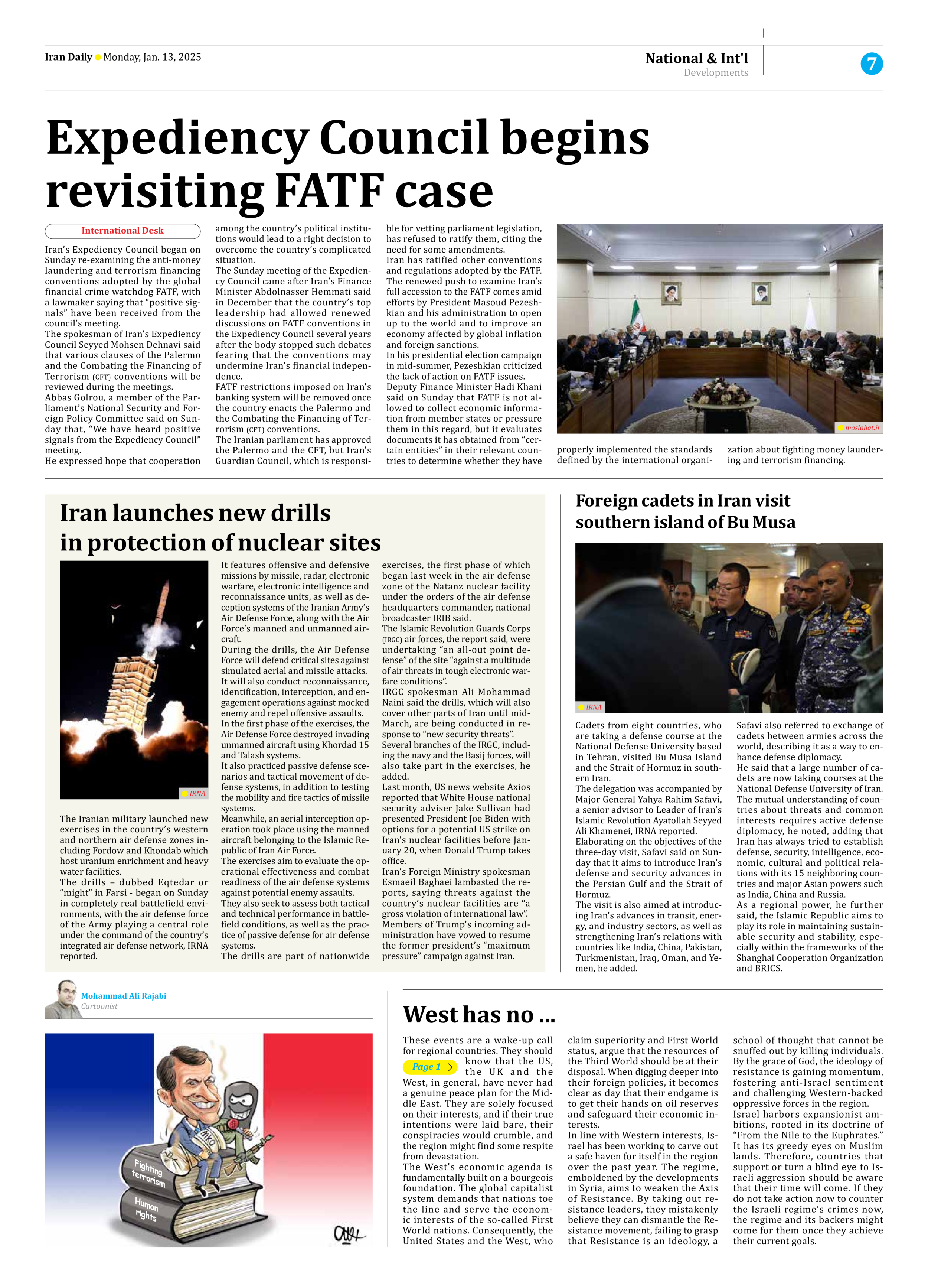
Expediency Council begins revisiting FATF case
Iran’s Expediency Council began on Sunday re-examining the anti-money laundering and terrorism financing conventions adopted by the global financial crime watchdog FATF, with a lawmaker saying that “positive signals” have been received from the council’s meeting.
The spokesman of Iran’s Expediency Council Seyyed Mohsen Dehnavi said that various clauses of the Palermo and the Combating the Financing of Terrorism (CFT) conventions will be reviewed during the meetings.
Abbas Golrou, a member of the Parliament’s National Security and Foreign Policy Committee said on Sunday that, “We have heard positive signals from the Expediency Council” meeting.
He expressed hope that cooperation among the country’s political institutions would lead to a right decision to overcome the country’s complicated situation.
The Sunday meeting of the Expediency Council came after Iran’s Finance Minister Abdolnasser Hemmati said in December that the country’s top leadership had allowed renewed discussions on FATF conventions in the Expediency Council several years after the body stopped such debates fearing that the conventions may undermine Iran’s financial independence.
FATF restrictions imposed on Iran’s banking system will be removed once the country enacts the Palermo and the Combating the Financing of Terrorism (CFT) conventions.
The Iranian parliament has approved the Palermo and the CFT, but Iran’s Guardian Council, which is responsible for vetting parliament legislation, has refused to ratify them, citing the need for some amendments.
Iran has ratified other conventions and regulations adopted by the FATF.
The renewed push to examine Iran’s full accession to the FATF comes amid efforts by President Masoud Pezeshkian and his administration to open up to the world and to improve an economy affected by global inflation and foreign sanctions.
In his presidential election campaign in mid-summer, Pezeshkian criticized the lack of action on FATF issues.
Deputy Finance Minister Hadi Khani said on Sunday that FATF is not allowed to collect economic information from member states or pressure them in this regard, but it evaluates documents it has obtained from “certain entities” in their relevant countries to determine whether they have properly implemented the standards defined by the international organization about fighting money laundering and terrorism financing.







